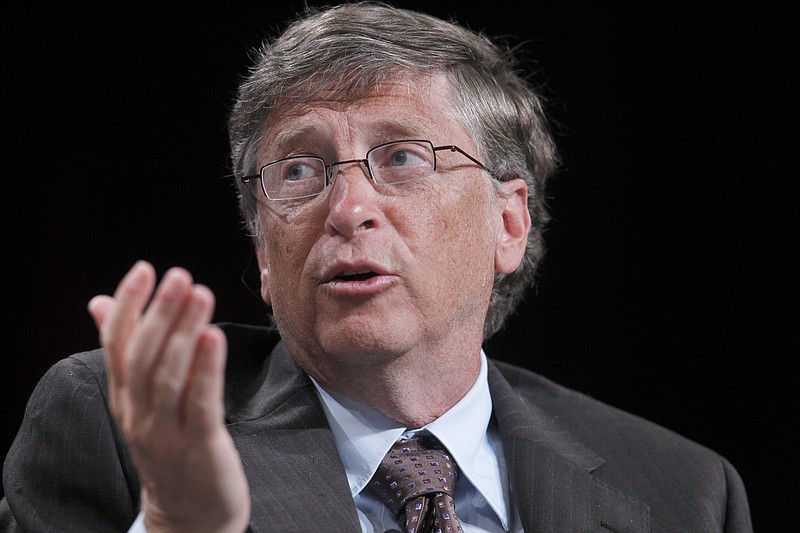Read more
Bill Gates and UN say malaria could be eradicated by 2040
WASHINGTON - Bill Gates is now focused on the eradication of malaria, and parasites everywhere have reason to fear.
A new Gates Foundation report argues against malaria containment in favor of malaria elimination - a goal that has provoked skepticism even among some malaria experts.
The billionaire's main contribution to global health is the manner in which he combines technology, aspiration, resources and rigor. It is the same approach that has chased the polio virus across the world to its redoubts in Taliban-controlled regions of Afghanistan and Pakistan.
Gates both drives and reflects a remarkable trend. Over the last 25 years, efforts to help the global poor have been massively ambitious and massively successful. More than a billion people have risen out of poverty. Tens of millions more are in school or have been saved from infectious diseases. Child mortality was halved, then halved again. More than 9 million people are on AIDS treatment in Africa. It is now possible to set goals in a number of areas - malaria elimination, an AIDS-free generation, the end of extreme poverty - and not be dismissed as a crank.
Following World War II, America and other nations organized the new economic order by creating durable institutions such as the World Bank and the International Monetary Fund. In this generation, a number of remarkably effective institutions to fight poverty and disease have been created that most Americans probably have never heard of. The President's Emergency Plan for AIDS Relief (PEPFAR). The President's Malaria Initiative (PMI). The Millennium Challenge Corporation (MCC). GAVI, the Vaccine Alliance. The Global Fund to Fight AIDS, Tuberculosis, and Malaria. And a private philanthropy, the Gates Foundation, belongs on this list as funder and peer.
This is - implausibly but truly - the golden age of aid. These impressive institutions have clear goals and measurement as part of their DNA. And they have worked in the context of eight broad Millennium Development Goals (MDGs) - reducing by half the proportion of people suffering hunger, ensuring universal primary education, cutting child mortality by two-thirds, etc. - that were approved at the U.N. Millennium Summit in 2000. The MDGs didn't do much directly, but they allowed the comparison of progress among countries, encouraging appropriate shame and healthy competition. And the goals gave reformers additional leverage within countries.
Now the MDGs, rather confusingly, have given way, at a recent U.N. meeting, to Sustainable Development Goals (SDGs). They demonstrate the U.N.'s infinite appetite for acronym and show evidence of committee design. There are now 17 goals and 169 targets. "When I sit with the head of a country, I don't say there are 169 things I want you to think about," says Gates, "I pick, at most, four."
Yet Gates says he "feels good about the SDGs." And with good reason. Though less prioritized, many of the goals are specific enough to encourage a new round of ambition. But it is certain to disrupt current practices and drive innovation. That is also Gates' intention by setting out the goal of defeating malaria in a generation. "There was once 1 million dead [from malaria each year]," he says, "Now it is half a million. But the path from half a million to zero is not just more bed nets." It will require new methods of diagnosis and treatment to stay ahead of the adapting parasite and to keep moving the malaria elimination line northward in Equatorial Africa.
Where, outside the best of corporate America, do you see such voluntary, strategic disruption? Such commitment to measured outcomes? It is the precise opposite of the way most people view spending on global health and development. But it is common practice in the golden age of aid.
Washington Post Writers Group
